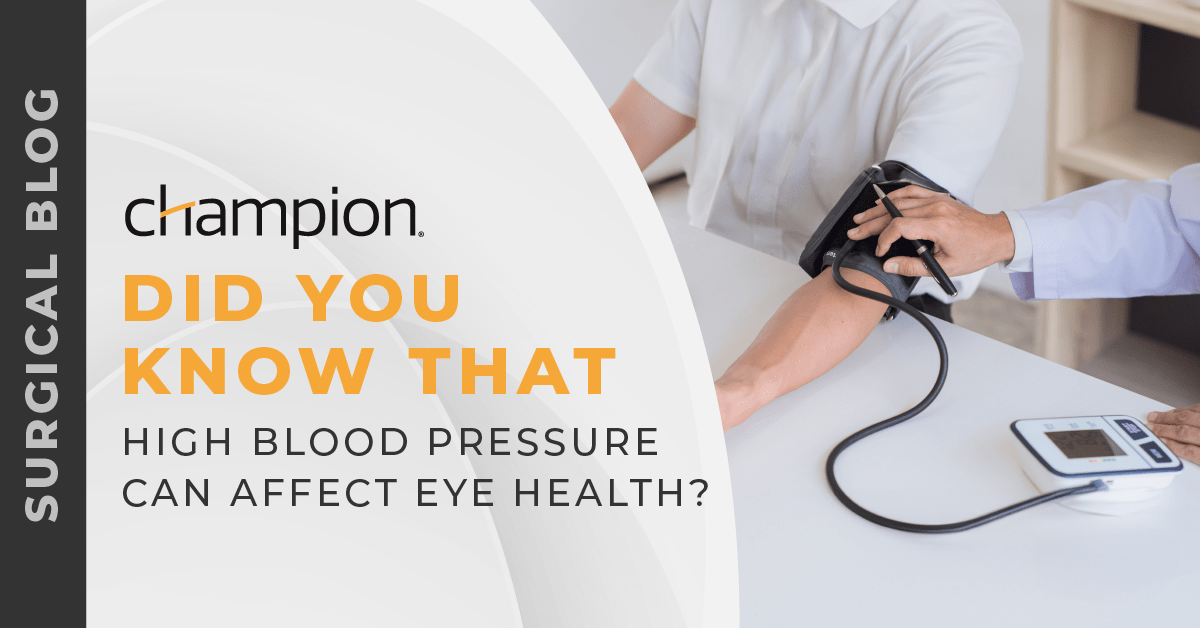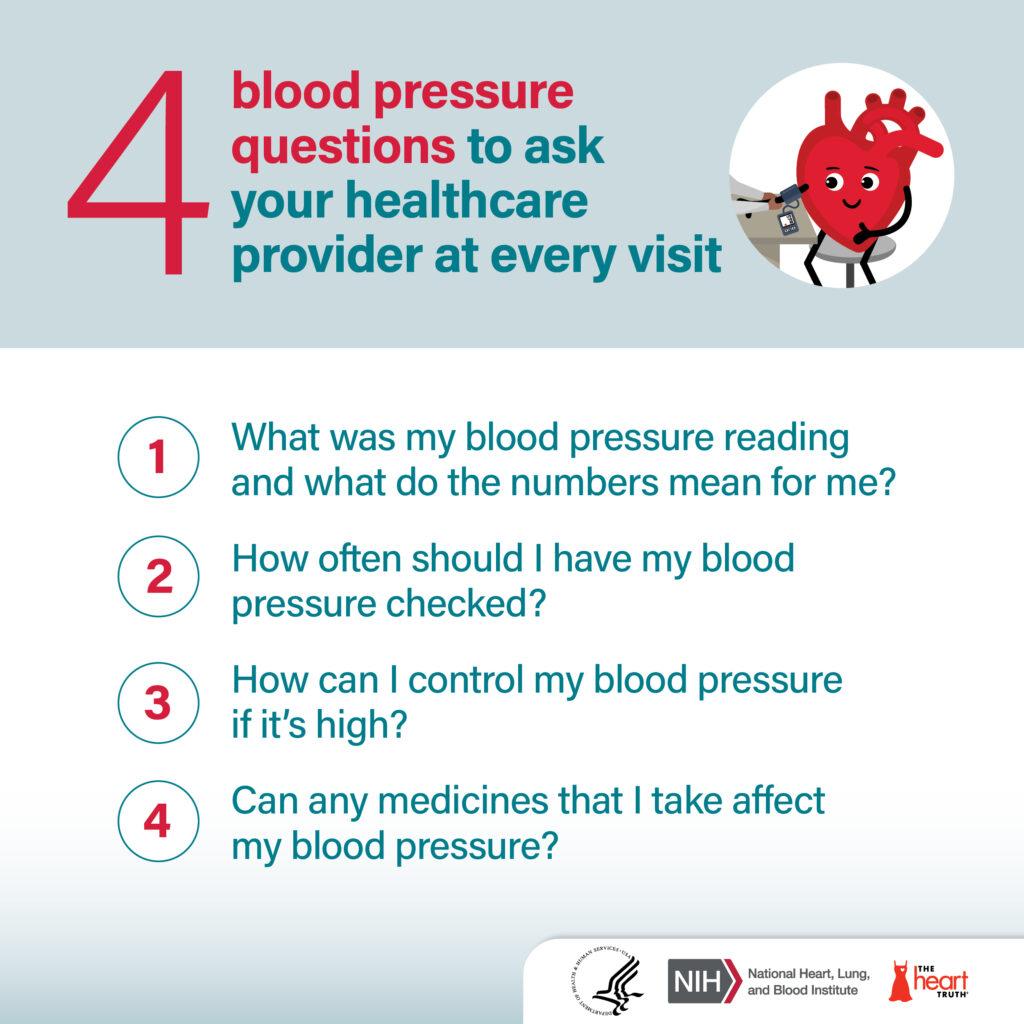
Did You Know That High Blood Pressure Can Affect Eye Health?
High blood pressure, also known as hypertension, is a common medical condition affecting millions worldwide. It’s known as “a silent killer” because it often presents no symptoms until complications arise.
Hypertension can have far-reaching effects beyond cardiovascular health, including its impact on eye health. Chronic hypertension can damage the blood vessels throughout the body, including those in the eyes. This damage can lead to a condition called hypertensive retinopathy, characterized by changes in the blood vessels in the retina.
In the early stages, hypertensive retinopathy may not cause noticeable symptoms. However, as the condition progresses, individuals may experience vision changes, such as blurred vision, double vision, or vision loss. Severe cases of hypertensive retinopathy can result in retinal hemorrhages, swelling of the optic nerve, and even permanent vision loss. Early detection and treatment of hypertensive retinopathy can help preserve vision and prevent complications.
Read More: “Current Trends for Improving Ophthalmic Spaces”
Since we know that hypertension can affect eye health, let’s delve into the causes, symptoms, treatment options, and prevention measures for high blood pressure.
Sign up to get the latest industry news and offers right in your inbox

Understanding High Blood Pressure
- Causes: High blood pressure can stem from various factors, including genetics, lifestyle choices, and underlying health conditions. Factors such as obesity, excessive salt intake, lack of physical activity, smoking, and chronic stress can all contribute to elevated blood pressure levels. Genetics also play a significant role, with a family history of hypertension increasing one’s risk.
- Symptoms: One of the concerning aspects of high blood pressure is its asymptomatic nature in the early stages. Many individuals are unaware of their condition until it leads to severe complications such as heart disease, stroke, or kidney failure. However, some people may experience symptoms like headaches, shortness of breath, dizziness, or nosebleeds. These symptoms, if present, warrant immediate medical attention.
- Treatment: Fortunately, various treatment options are available to effectively manage high blood pressure. Lifestyle modification — including adopting a healthy diet rich in fruits, vegetables, and whole grains, limiting salt intake, engaging in regular exercise, maintaining a healthy weight, and quitting smoking — can significantly lower blood pressure levels.
In addition to lifestyle changes, medication may be prescribed by health care professionals to help control hypertension. Commonly prescribed medications include diuretics, beta-blockers, ACE inhibitors, angiotensin II receptor blockers, and calcium channel blockers. It’s essential to adhere to the prescribed treatment plan and attend regular check-ups to monitor blood pressure levels and adjust medication as necessary.

How to Help Prevent High Blood Pressure
Prevention plays a crucial role in managing high blood pressure and reducing the risk of associated complications. Adopting a heart-healthy lifestyle from an early age can significantly lower the risk of developing hypertension. Regular exercise, a balanced diet, limited alcohol consumption, stress management techniques, and avoiding tobacco products are key preventive measures.
Part of a balanced diet means choosing foods that are low in sodium. Some swaps might include grilled or baked chicken (without the skin) instead of bacon or hotdogs. Another swap might include salt-free chips, pretzels, and peanuts — and spices and herbs instead of ketchup and soy sauce.
Some doctors may suggest their patients follow what’s known as “The DASH Diet.”The DASH acronym stands for Dietary Approaches to Stop Hypertension, and the “diet” is a nutritional pattern aimed atpreventing and managing hypertension. It emphasizes consuming foods rich in nutrients known to lower blood pressure, such as potassium, calcium, magnesium, and fiber. Some food suggestions include fruits like apples, bananas, and berries; vegetables such as spinach, carrots, and broccoli; whole grains like brown rice, oats, and whole wheat bread; and lean protein sources such as chicken, fish, and beans.
Following the DASH diet can benefit the body by lowering blood pressure, reducing the risk of heart disease and stroke, improving cholesterol levels, and promoting overall heart health. Additionally, it can aid in weight management and contribute to a well-balanced, nutrient-rich diet.

The Good News About High Blood Pressure
Even though high blood pressure is a prevalent condition among those living in theUnited States, it’s manageable and often preventable. By understanding its causes, symptoms, treatment options,and prevention strategies, individuals can take control of their health and reduce the risk ofcomplications.
Additionally, recognizing the impact of hypertension on eye health underscores the importance of regular eye exams and preventive care.
In ophthalmic surgical settings, having the right equipment is paramount for delivering optimal patient care. Incorporating innovative solutions like Champion’s TMM5 PLUS procedure chair can further enhance patient care and surgical outcomes. With its ergonomic design, customizable features, and advanced functionality, the TMM5 PLUS provides unparalleled comfort for both patients and medical professionals.
The TMM5 PLUS procedure chair offers precise positioning capabilities, ensuring optimal patient positioning during ophthalmic surgeries. Its intuitive controls allow for seamless adjustments, enhancing surgical precision and efficiency. Moreover, its durable construction and easy-to-clean upholstery make it an ideal choice for demanding clinical environments.
Learn more in our blog “Key Benefits of Stretcher-Chairs for Optical Surgical Procedures,” then contact us today to request a quote or a free demonstration of how the TMM5 PLUS would work in your facility.
